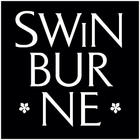Doctor of Philosophy (PhD) in Engineering
- Posted by Swinburne University of Technology
- Home
- Courses
- Swinburne University of Technology
- Doctor of Philosophy (PhD) in Engineering
Doctor of Philosophy (PhD) in Engineering
As a candidate for the Doctor of Philosophy in Engineering, you’ll undertake supervised research with the aim of making a significant and original contribution to a discipline or profession. The research you’ll undertake may be pure, exploratory, applied, experimental and/or creative. Research areas Engineering Computer systems Electrical engineering Electronics Robotics…
Categories
COURSE DESCRIPTION
As a candidate for the Doctor of Philosophy in Engineering, you’ll undertake supervised research with the aim of making a significant and original contribution to a discipline or profession. The research you’ll undertake may be pure, exploratory, applied, experimental and/or creative.
Research areas
Engineering
Computer systems
Electrical engineering
Electronics
Robotics
Telecommunications
Skills you’ll learn
Independent thinking
Decision-making skills
Good judgement
Logical thought, rationality
Communication skills
Project management skill
Career opportunities
Academic
Researcher
Consultant in Government, industry or not-for-profit
Entrepreneur
Business development
REQUIREMENTS
Applicants must have completed at least four years (or equivalent) of tertiary education studies in a relevant discipline at a high level of achievement, and must have been approved for the award of the degree(s) for which they studied.
A high level of achievement is defined as the equivalent of a four year Swinburne Honours degree that includes a significant research component in the fourth year, leading to an Honours degree class 1 (average grade between 80-100) or class 2A (average grade between 70-79) level.
Four years of tertiary studies can be demonstrated by the completion of any of the combinations of qualifications below, at the required standard of achievement:
a Bachelor’s degree (three or four years) and a Masters by Research; or
a Bachelor’s degree (three or four years) and an Honours year; or
a Bachelor’s degree (three or four years) and a Masters by Coursework; or
a Bachelor’s degree (three or four years) and a postgraduate diploma in Psychology; or
a Bachelor’s degree (four years) in an approved discipline.
English language requirements
International applicants must provide evidence of one of the following:
minimum IELTS overall band of 6.5 (Academic Module) with no individual band below 6.0 or a TOEFL iBT (internet-based) minimum score of 79 (with a reading band no less than 18 and writing band no less than 20); or Pearson (PTE) 58 (no communicative skills less than 50) no longer than 24 months before submitting your application
satisfactory completion of Swinburne’s English for Academic Purposes (EAP 5 Advanced level) with overall 70%, all skills 65%
successful completion of a total of 24 months (full time equivalent) of formal study where the language of instruction and assessment was English at AQF level 7 or above (or equivalent) at an approved university no longer than 60 months before submitting your application.
EDUCATIONAL INSTITUTION
Swinburne University of Technology is a public university based in Melbourne- that is among the top 3% of universities in the world. The University focuses on science, technology and innovation and offers courses well recognised by professional organisations. The Good Universities Guide 2016 awarded the University five stars for both graduate satisfaction and generic skills and four stars for teaching quality. It also features in the top 200 ranked universities in the QS Graduate Employability Rankings; and enjoys close ties with industry- providing students with invaluable workplace experience.
Swinburne University of Technology is a public university based in Melbourne- that is among the top 3% of universities in the world. The University focuses on science, technology and innovation and offers courses well recognised by professional organisations. The Good Universities Guide 2016 awarded the University five stars for both graduate satisfaction and generic skills and four stars for teaching quality. It also features in the top 200 ranked universities in the QS Graduate Employability Rankings; and enjoys close ties with industry- providing students with invaluable workplace experience.

